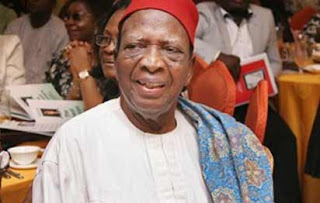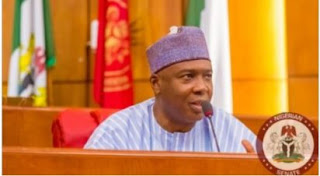We saw a Billion Naira and didn’t know it ON December 7, 2017
By Josef Omorotionmwan
THE Budget is such an important document in the life of an organisation that we cannot stop talking about it, at least, during the budget season. Today, we shall be discussing matters arising from the budget.
In Nigeria, our governments at all levels are still budgeting largely to fulfill all righteousness. There is still the belief that even without any budget, some governments would not be any worse than they already are.
The story is told of a past State Governor who went to the House of Assembly to present his annual Appropriation Bill. The Assemblymen wanted to know what was in the budget for them. They were told that a bullion van was stationed at the members' car park. Some members were dispatched to go and verify if the content was right. As soon as the question was resolved in the affirmative, the Appropriation Bill was received. Before the Governor got back to his office, the news was already on radio that the Bill had received its first, second and third readings and passed. That's rapid result!
As crude as this sounds, the truth remains that we may not have gone much higher than that level. There is the mistaken impression that the legislature is merely a rubber-stamp on issues of the budget. In reality, though, none of the two branches of government – the Executive and the Legislature – is any less important than the other.
All those calling on the National Assembly to pass the 2018 Appropriation Bill recently presented to the National Assembly, before the end of the year are, indeed, calling on the National Assembly to rubber-stamp the document. This is a wrong call. They are actually asking the National Assembly to pass the Bill as presented; and they could as well proceed from there to insist that the budget must also be implemented as passed. Indeed, they are saying that there should be no role for the National Assembly.
Apparently, no one appears to be telling our functionaries the real truth. We keep dancing around the truth; but year after year, we keep getting the wrong results. An Executive that wants an early budget must learn to return to early presentation to the Legislature. It can't be done otherwise.
At the risk of repetition, let everyone insist that the National Assembly should quickly give us an Act for a Budget Cycle as sketched out in this column a fortnight, ago, which will compel certain actions on the budget by specific dates. Otherwise, by this time next year, and subsequent years, we shall still be dancing in this same awkward circle.
Essentially, every budget is incremental – for better and for worse. As population increases and technology advances, budget continues to rise. As the increased population and enhanced technology begin to tamper with Nature's purpose for the earth's surface, the propensity for natural disasters – earth-quakes, tsunamis, typhoons, hurricanes, etc., also increase in intensity, thus requiring bigger budgets to checkmate them.
The incremental nature of the budget must be gradual. In the First Republic, the budget of the Federal Government of Nigeria hovered around the lower millions. The increases kept trickling in and had a major boost in 1973 when the OPEC intervention drastically moved up the price of our crude oil, which astronomically moved accruable revenue upwards.
Nigeria is today in a race towards the Zillion Naira mark for its budget. In 1981, when this writer was the Secretary to the House of Representatives Committee on Appropriations, we hit the Billion Naira mark; without recognising it. By the time we summed up the returns from the various Committees of the House, we had ten digits. To us, this was one Thousand Million Naira. It took the intervention of Hon. Ralph Obioha (NPP/Imo State), a profound CPA who, prior to his election, was a major player in the American Financial System, to educate us that we had hit the Billion Naira mark.
And so soon, we have been talking of Trillions since the past four Financial Years. Quite frankly, this has been largely in the abstract – we budget in Trillions and perform barely above the Billion Naira mark.
All eyes are today on the Governor of Cross River State, Prof. Ben Ayade, over his Budget Estimates of N1.3 Trillion, christened Budget of kinetic crystallization. There is nothing serious, but everything unserious, about this Appropriation Bill. First, like most Nigerian budgets, the Ayade measure is loud on the Expenditure side but stoically silent on the Revenue side, which runs against the time-honoured accounting principle that for every debit, there must be a corresponding credit.
Secondly, Ayade had a N300 Billion Budget in 2017 and that budget is still limping below the 50% performance level in a State that is defaulting heavily on the payment of staff salaries and pension arrears! Prof should have been liberal enough to tell his audience where he has suddenly hit some uranium mines that will bridge the humongous difference. Certainly, such a man must be hiding somewhere. So, we must credit him with some sense of responsibility and wait to see what happens in the next few months. For all we know, no other State, even Lagos, is attempting this apparently vainglorious move!
You must take a holistic view of the budget. How else do you discover multiple entries in the budget? For example, in the Second Republic, President Shehu Shagari's, Administration was in a hurry to develop Abuja. It had robust budget for the Federal Capital Development Authority; and still went ahead to make humongous provisions in every Ministry "For the development of Abuja" – leading one opposition member to exclaim at a point, "Abuja, Abuja, Abuja. We don't want to be Abujalised". Every budget has its own tricks.
Why is the Budget today shrouded in secrecy? Time was when the citizen could walk into the PAPER OFFICE and a copy of the budget was his for the asking. Not anymore. We demand greater accountability and more transparency on the Budget. After all, it is a public document.



Comments
Post a Comment